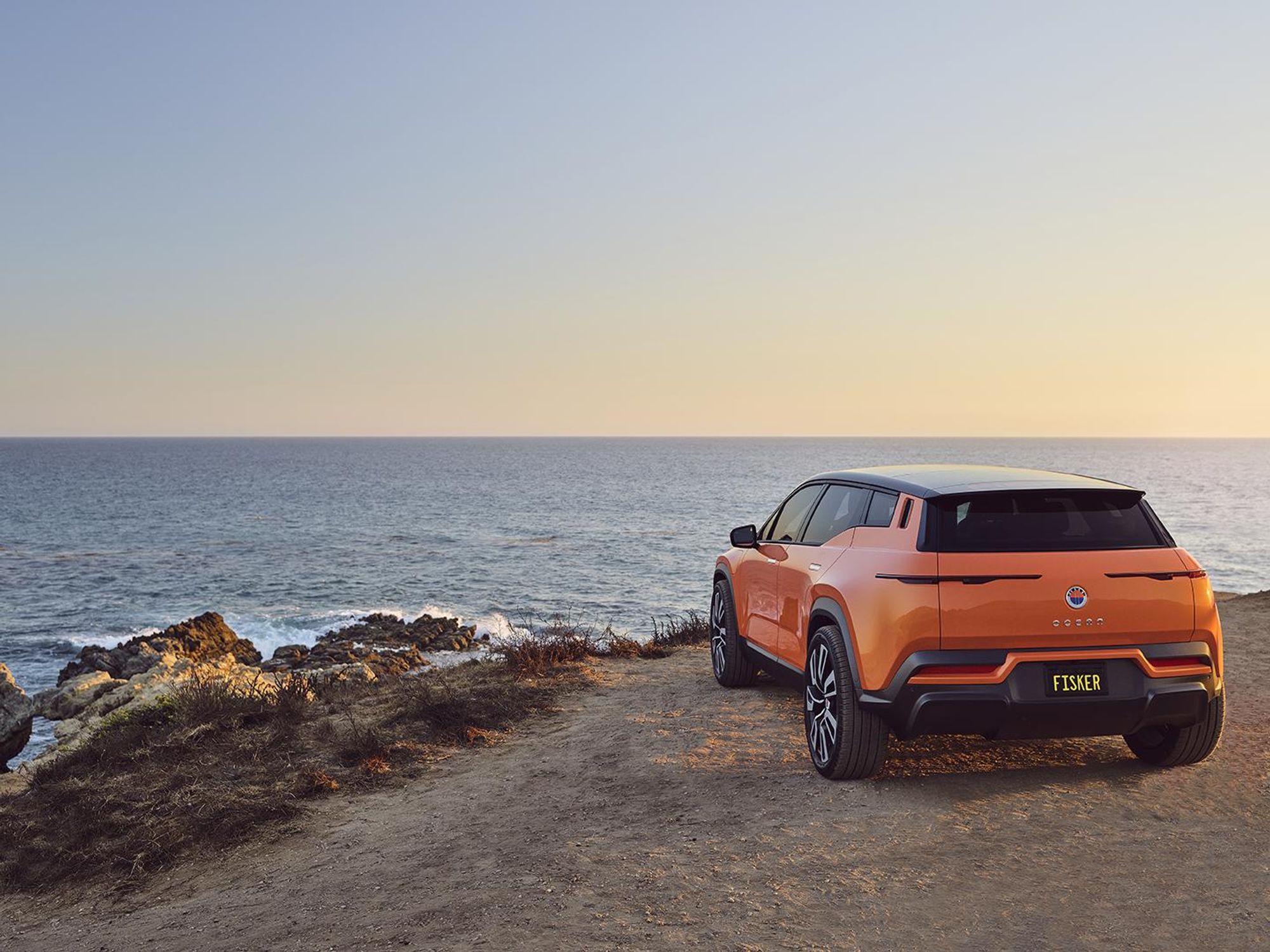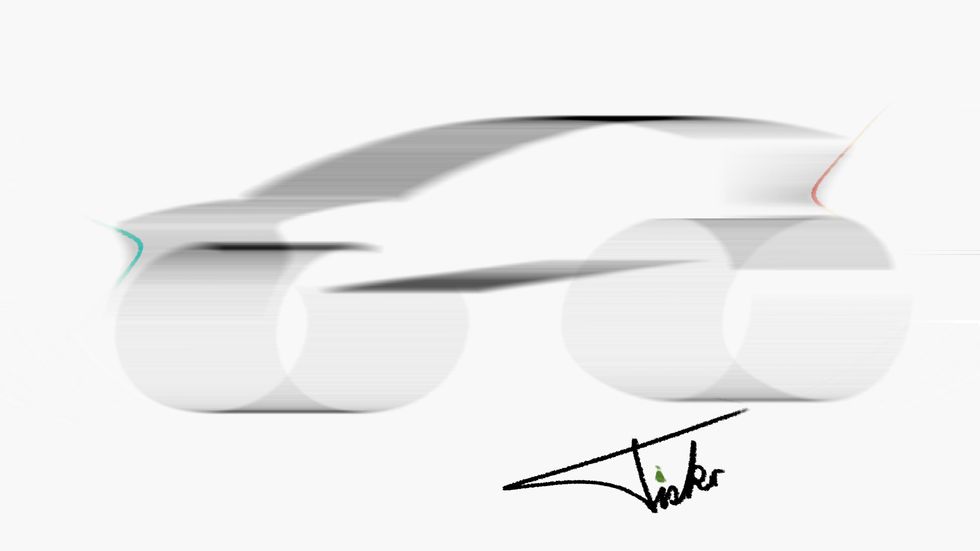‘Why Does It Have To Be That Way?’ Fisker’s CEO on His Plans for Their New Electric Car
Zac Estrada is a reporter covering transportation, technology and policy. A former reporter for The Verge and Jalopnik, his work has also appeared in Automobile Magazine, Autoweek, Pacific Standard, Boston.com and BLAC Detroit. A native of Southern California, he is a graduate of Northeastern University in Boston. You can find him on Twitter at @zacestrada.

Henrik Fisker doesn't want to be like Tesla or any of the other startup automakers trying to corner the electric car market, largely by manufacturing luxury vehicles. But his planned second car could be a radical step towards that goal.
Unveiled last month, Fisker Inc.'s new electric car is set to cost less than $30,000 and be a dramatic reinvention of not only the compact car, but also the format of the car as we know it.
In an interview with dot.LA, Henrik Fisker said it is the right time to rethink not only who might be willing to buy new electric cars, but also the kind of car city-dwellers will want to own.
Dubbed Project PEAR or Personal Electric Automotive Revolution, Fisker's new car may look nothing like cars on the road; he rethinks seating arrangements and even the trunk.
"It's not about being in a segment, but building vehicles people want," Fisker said. "What if we do something iconic, something feel-good, that doesn't show how much money you have?"
The Manhattan Beach-based startup plans to partner with Foxconn — an electronics manufacturer best known for producing Apple products like the iPhone and iPad — on a new electric car for an on-sale date in 2023, a scant 24-month development timeline that's roughly half the time it typically takes to build a new car. It would be the second vehicle in Fisker's plan to produce four new electric cars by 2025, in order to have a lineup of different styles of vehicles. The first of which is scheduled to be the Ocean, an SUV to arrive next year.
"Does it need to have five seats? Does the trunk need to open a certain way?" Fisker said. "Car design has hardly changed in 50 years. Why does it have to be that way?"
He cited the original Mini from 1959 as a landmark car design from which he sought to model his new car. Hardly 10 feet in length but with room for a family of four or five, the Mini was ingeniously packaged, very fuel efficient and inexpensive. But its style and personalization options allowed it to grow a cult following among all groups of people, from Paul McCartney to Fisker's own mother. Fisker wants to emulate that with the Foxconn car, but says he needs to bring it to market quickly.
"The normal way that many people think of a startup is that you produce a car, suffer for a couple years and then you make another car," Fisker said. "That's not the way we want to be a car company."
Instead of reaching high and building a luxury electric vehicle for the wealthiest early adopters, he's trying to reach the core of the new car market that's rapidly trying to adopt battery electric technology to stay in business.
Fisker says he thinks the market for high-end luxury EVs that have outrageous performance figures is tapped out. Not only is that a dig at Tesla (and perhaps an unintentional one at his previous, now bankrupt company), but it's another concession that the EMotion luxury sedan concept he debuted at the 2018 Consumer Electronics Show is not in his current plans.
Even the upcoming Ocean SUV is set to have a base price of around $37,000 before federal and local incentives, which puts it more on par with electric vehicles from Nissan and Volkswagen than Tesla. But for his California-based company in a legislative environment eager to jump on electric vehicle technology, Fisker insists on thinking very differently.
"Everybody knows it's possible to make a $100,000-plus EV, and I don't think that's a new frontier anymore," Fisker said. "You can make an EV like that, but that race is already done. I think the real excitement is how do we get EVs into the higher quantity market, and how do we refocus mobility."
Fisker says last year's COVID-19 pandemic and lockdowns changed people's attitude towards mobility, especially in cities.
Instead of building a vehicle that would be ideal for ridesharing, Fisker said his new car will be compact and practical. Giving much of the engineering work to Foxconn allows his company to focus more on the design. He doesn't see people giving up their cars in droves, even if more people work from home or start using more public transportation.
"We saw a lot of people being comfortable without having a car and using rideshare," he said. "I think a lot of people want to have a car, but they really want mobility."
- Fisker Set to Go Public with $2.9b Valuation, EV SUV to Roll Out by ... ›
- Fisker and Apple Manufacturer Foxconn to Build Electric Cars - dot.LA ›
- Fisker Picks Up Manhattan Beach Headquarters - dot.LA ›
- Fisker to Go Public, Set to Produce Electric Cars by 2022 - dot.LA ›
- Faraday Future Looks to Grow in China - dot.LA ›
- Fisker Wants Climate Neutral Car, Eyes Electric Pickup Truck - dot.LA ›
- Fisker Says Its Losses Are Shrinking As It Readies a New SUV - dot.LA ›
- Foxconn Is Eyeing Sites in U.S., Thailand to Build EVs - dot.LA ›
- Fisker Is Now Taking Reservations For Its Second EV: The PEAR - dot.LA ›
Zac Estrada is a reporter covering transportation, technology and policy. A former reporter for The Verge and Jalopnik, his work has also appeared in Automobile Magazine, Autoweek, Pacific Standard, Boston.com and BLAC Detroit. A native of Southern California, he is a graduate of Northeastern University in Boston. You can find him on Twitter at @zacestrada.






 Image Source: Skyryse
Image Source: Skyryse